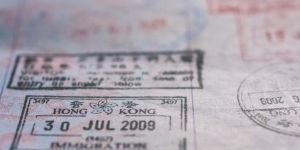
Hong Kong is one of the most popular travel destinations in Asia. Visitors come to Hong Kong for leisure, sightseeing, exploring its quiet beaches or hectic urban scene or to attend one of the city's many business conferences and trade shows. Whether you are visiting the city for business, pleasure or to catch up with family and friends, here's what you need to know about arranging your travels to Hong Kong.
The visa application system and overall regulations differ from those applied in China, as Hong Kong has its own government and immigration laws. Depending on your country of origin, you may or may not need a visa to visit Hong Kong.
Citizens from visa-exempt countries can travel with a valid passport. However, if you plan to stay in Hong Kong for more than 90 days, you will need to apply for the appropriate type of visa (Work Visa if you intend to work in Hong Kong; Investment Visa if you are considering purchasing shares in a business, Dependant Visa if your immediate family is in Hong Kong, and so on).
Important:
Traveling to Mainland China requires a separate visa. Make sure to arrange all the needed documents in advance if you plan to visit China during your trip.
Good to know:
There are few import taxes and limitations in Hong Kong as to what you can bring to the region - provided these are legal items in reasonable quantities. The duty-free allowance for those arriving in Hong Kong is 1L of alcohol and 19 cigarettes (or 24 grams of tobacco).
How to apply for a visa to Hong Kong?
To apply for a visa or entry permit to Hong Kong, you will need to meet the following requirements:
- Have no criminal record
- Possess sufficient funds to support yourself during your stay
- Provide proof of booked return flights
Once you have prepared the appropriate documents, you can apply for an ID 1003A type visa or an ID 1003B type visa with the Chinese authorities or at Chinese immigration offices, diplomatic agencies and consular missions. You can also download the form from the Hong Kong Immigration Department website.
You must be at least 16 years old to be eligible. Otherwise, your application form has to be signed by your parents or guardian.
You will need to submit the following documents to apply for a visa to Hong Kong:
- A duly completed visa application;
- Identification documents;
- Proof of sufficient funds;
- Return flights;
- Proof of your trip's purpose;
- Passport-type ID photos.
Attention:
You are not allowed to work, study or indulge in any commercial activity, whether remunerated or not, with a tourist visa. However, you are allowed to conclude contracts, carry out control exercises, attend seminars or workshops, etc.
Other types of visas to Hong Kong
Now, if you are traveling to Hong Kong for purposes other than tourism, you will need a different type of visa. Here are some options to consider:
- Work visa. This is the only visa that allows you to legally work in Hong Kong. However, getting a work visa is not that easy. The Hong Kong government takes the application process very seriously and when considering your application they will take into account whether you have the necessary expertise for the position you are applying for. They will also need to make sure that the skills and experience you possess can't be acquired locally.
- Investment visa. This is a special type of visa granted to foreign entrepreneurs who are considering relocating with the purpose of setting up a business in Hong Kong. Under this type of visa, an investor will be issued a type of work permit classifying them as an employee of their own company. To apply for an investment visa to Hong Kong, you will need to prove to the immigration authorities that the business you plan to open will make a contribution to the development of the region's economy. The investment visa is typically issued for one year and can be renewed later if your business is doing well. As for the investment itself, there is no minimum requirement as to how much money you should put into the business. However, relevant authorities will carefully review your business plan and make sure that the proposed funds are enough to cover operating expenses.
- Internship visa. If you are looking to gain professional experience in Hong Kong, you can apply for an internship visa. The internship visa is valued for a maximum of 12 months. To apply for an internship visa, you will need to have a sponsor (such as a reputable local company) that can help you go through all the required formalities and take care of you during your stay in Hong Kong.
- Student visa. If you want to enroll in higher studies in Hong Kong, you can apply for a student visa. To be eligible for a student visa, you can apply for both full-time or part-time courses. You will need to present an acceptance letter from a Hong Kong University and have proof of sufficient funds to support yourself during your stay.
- Dependent visa. If you have family in Hong Kong, you can apply for a dependent visa: for instance, if your spouse is a resident or citizen of Hong Kong. You will need to provide proof of a genuine relationship and a clean criminal record.
If you are not sure what type of visa best matches your purpose of stay and experience, it would be best to consult your nearest Chinese diplomatic and consular mission. If you have further questions about the current procedures for entering Hong Kong, you can contact the Hong Kong Immigration Department for the most up-to-date information and procedural guidance.
Traveling to Hong Kong: safety
Generally, Hong Kong is a very safe destination to travel to. Violent crime in the city is very rare and more expats note that they rarely feel in danger in Hong Kong, even walking the city streets late at night. With that, it's very important that you exercise due caution and don't put yourself in dangerous situations.
Here are a few things to keep in mind when it comes to safety in Hong Kong:
- The Hong Kong government has very strict policies when it comes to demonstrations. Protesters may be arrested and deported. Try to avoid unlawful gatherings, and don't take pictures or videos of a protest.
- Watch out for petty crime. Pickpockets and thieves often target tourist spots and crowded areas (the subways, bus stops, markets, etc.). Make sure to keep an eye on your belongings at all times.
- Though rare, cases of drinks being spiked at bars and nightclubs exist. This typically results in theft or credit card fraud. Don't leave your drink unattended, and do not accept food, drink, and cigarettes from strangers.
- Scams happen quite often in Hong Kong. These may happen in everyday situations (like someone asking you for help to carry their luggage) or involve fake property listings, calls from a bank, visa offers, and more. Make sure to do thorough research before sending over money or sharing personal information with anyone you don't know.
- Hong Kong has a subtropical climate and sometimes experiences typhoons. If the city announces a warning for Typhoon level 8 or above, a lot of services in the city may be stopped (such as public transportation). Make sure to have your phone turned on, as you will receive notifications about the situation from local officials.
When it comes to the health risks related to traveling to Hong Kong, here are a few things to pay attention to:
COVID-19 is still considered to be a health risk in the region. Upon arrival in Hong Kong, you will need to take a PCR test. And if you test positive for COVID-19, you may be required to spend some time in quarantine in a government facility. During this time, you won't be able to leave the quarantine facility. Make sure to consult immigration authorities for the most up-to-date requirements for entering Hong Kong.
From May to October, Hong Kong experiences high levels of humidity.
Hong Kong has very high humidity from May to October. This can make life in Hong Kong uncomfortable for people with certain health conditions such as heart problems, asthma, etc. If you are concerned about how high humidity may affect your health, make sure to consult a medical professional before your travels.
Due to its proximity to China, Hong Kong occasionally experiences high levels of air pollution. If you have heart or breathing problems, you may be at a higher risk of health problems caused by high pollution levels. Download the Hong Kong AQHI app to monitor pollution levels in the city in real-time.
Hand foot and mouth disease (HFMD) is quite widespread in Hong Kong. It typically affects children but can also occur in young adults. Make sure to keep to proper hygiene practices and wash your hands regularly.
Outbreaks of waterborne, airborne and foodborne infectious diseases (such as bird flu) can also sometimes occur in the city. To avoid catching an infectious disease, only drink boiled or bottled water. Do not eat raw or uncooked food.
Traveling to Hong Kong: customs
When traveling to Hong Kong, make sure to follow customs regulations to not get into trouble or have your possessions confiscated.
Items that are prohibited from being brought into Hong Kong include dangerous drugs, psychotropic substances, controlled chemicals, antibiotics, arms, ammunition, weapons, fireworks, strategic commodities, rough diamonds, animals, plants, endangered species, telecommunication equipment, game, meat, poultry, eggs, and powdered formula.
Note that CBD is considered a controlled substance and can not be brought into the country.
Nicotine is listed as a Part 1 poison under the Hong Kong Poisons Board and electronic cigarettes containing nicotine are considered to be pharmaceutical products.
Important:
Effective as of April 30, 2022, Hong Kong customs prohibit taking alternative smoking products (such as electronic cigarettes) on board an aircraft, carrying them on your person, and well storing them in Hong Kong.
Note that it's illegal to carry sleeping pills, antibiotics, and some other medication without a prescription from your doctor.
It's illegal to carry sleeping tablets and some medication without a prescription. Carry a copy of your prescription or a letter from your doctor. Make sure to have all your medication labeled and have a note from your doctor ready when passing customs.
Note that if you bring prohibited items into Hong Kong, you will be liable to prosecution, and the items that have been brought in unlawfully into the city will also be confiscated.
Overall, traveling to Hong Kong is relatively easy and uncomplicated. You should be safe and comfortable throughout your stay. Moreover, as most Hong Kongers speak very good English, you will be able to fully avoid any trouble associated with having a language barrier.
Useful links:
We do our best to provide accurate and up to date information. However, if you have noticed any inaccuracies in this article, please let us know in the comments section below.









